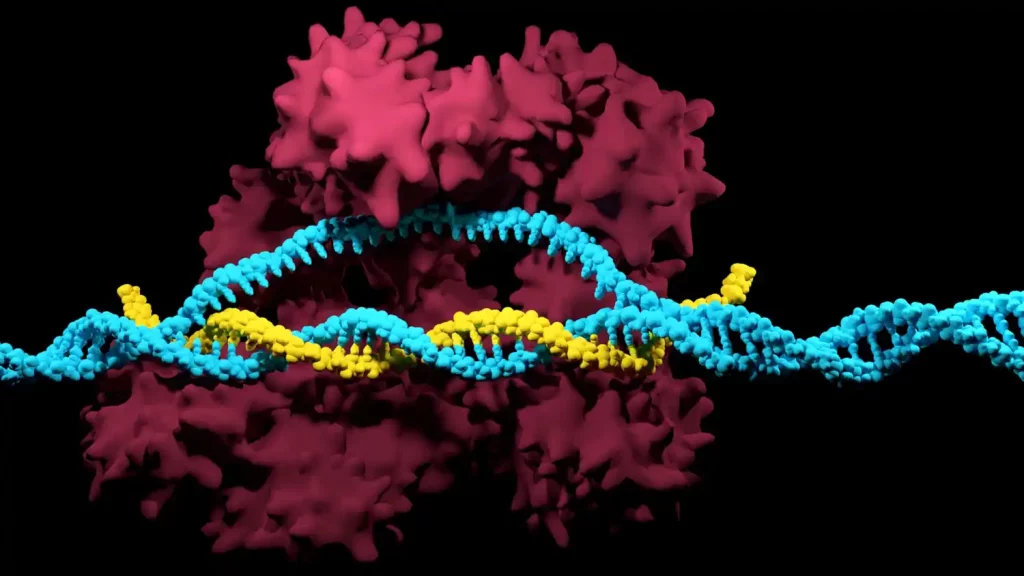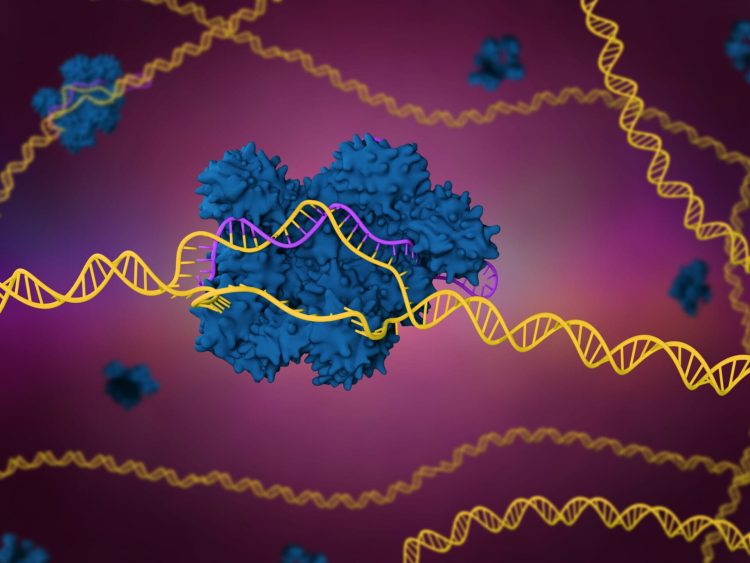CRISPR (Clustered Regularly Interspaced Short Palindromic Repeats) technology has revolutionized the fields of biology and medicine, enabling scientists to make precise edits to the genome of living organisms. Since its discovery, CRISPR has opened up new possibilities in genetic research, disease treatment, and agricultural improvements. The development of CRISPR has drastically reduced the cost and complexity of gene editing, making it an accessible tool for labs around the world.
This article will explore the progress of CRISPR technology, its impact on the scientific community, its potential applications in human health, and the ethical concerns surrounding its use.
1. What is CRISPR Technology?
CRISPR is a natural system used by bacteria to defend against viruses. It involves sequences of DNA that are part of the bacteria’s immune system, which store segments of viral DNA. When a virus attacks again, the bacteria can recognize the virus and cut its DNA, using proteins like Cas9. This ability to cut and edit DNA has been adapted for use in other organisms, including humans.
The CRISPR-Cas9 system consists of two main components:
- CRISPR sequences, which act as a genetic memory of past infections.
- Cas9 protein, which acts as molecular scissors to cut DNA at specific locations.
By designing RNA sequences that guide Cas9 to a specific spot in the genome, scientists can cut the DNA at that location and introduce changes, whether that means correcting mutations, inserting new genes, or removing unwanted DNA.
2. CRISPR in Medicine: Transforming Disease Treatment
The ability to precisely alter the genome has immense potential in medicine, especially for treating genetic disorders. Inherited diseases caused by mutations in single genes can now be targeted and corrected using CRISPR technology.
1. Gene Editing for Genetic Disorders
One of the most exciting applications of CRISPR in medicine is its potential to treat genetic disorders such as sickle cell anemia, cystic fibrosis, muscular dystrophy, and Huntington’s disease. These conditions are caused by specific mutations in the DNA, and CRISPR allows scientists to repair or replace the faulty genes responsible for these diseases.
- Sickle Cell Anemia: Scientists have been successful in using CRISPR to modify the genes of patients with sickle cell anemia. By editing a patient’s blood cells to produce fetal hemoglobin, they can compensate for the defective hemoglobin that causes the disease. Clinical trials are ongoing, with promising results showing that patients have been able to live symptom-free after receiving CRISPR-edited cells.
- Cystic Fibrosis: Cystic fibrosis is caused by a mutation in the CFTR gene, which affects the lungs and other organs. In laboratory settings, scientists have used CRISPR to correct the CFTR gene in cells from patients, potentially offering a cure for this condition in the future.
2. Cancer Treatment
CRISPR is also being explored as a tool for fighting cancer. By editing immune cells, such as T-cells, scientists can enhance the body’s natural defenses to target and destroy cancer cells. This technique, known as immunotherapy, has shown promise in clinical trials.
- CAR-T Cell Therapy: This is a form of immunotherapy in which a patient’s T-cells are modified using CRISPR to recognize and attack cancer cells more effectively. Researchers have successfully used CRISPR to edit T-cells and enhance their ability to target various cancers, including leukemia and lymphoma.
- Oncolytic Virotherapy: Another approach being explored is the use of CRISPR to modify viruses so they selectively target and kill cancer cells. Scientists are working on engineering viruses that can infect and destroy tumors while sparing healthy cells.
3. HIV Treatment
HIV, the virus that causes AIDS, targets immune cells and integrates its genetic material into the host’s genome. Researchers are investigating CRISPR’s ability to cut out the HIV genome from infected cells, potentially curing the infection. Early research in animal models and human trials is showing promise, and CRISPR could one day become a tool to eradicate the virus from the body.
3. CRISPR in Agriculture: Enhancing Crop Production
In addition to its medical applications, CRISPR has also transformed agriculture. It enables scientists to edit the genomes of plants and animals to improve traits such as disease resistance, growth rates, and nutritional content.
1. Creating Disease-Resistant Crops
One of the key applications of CRISPR in agriculture is the development of crops that are resistant to diseases, pests, and environmental stresses. This can lead to higher yields and more reliable food sources. For example:
- Crispr-edited rice has been developed to resist bacterial blight, a disease that causes significant crop loss.
- Scientists have edited the genome of wheat to make it resistant to powdery mildew, one of the most widespread diseases affecting this crop.
2. Enhancing Nutritional Content
CRISPR can be used to enhance the nutritional profile of crops. For example, scientists are editing the genes of corn to increase its levels of important vitamins, like vitamin A. This could have a significant impact on combating malnutrition in developing countries where certain nutrients are lacking in the diet.
3. Livestock Improvements
CRISPR can also be applied to livestock breeding to enhance productivity and disease resistance. For example, researchers are working on genetically modified pigs that are resistant to the PRRS virus, which affects the pork industry. CRISPR could also be used to create disease-resistant chickens and cattle that grow faster and have better meat quality.

4. Ethical and Safety Concerns
While CRISPR has enormous potential, its use raises significant ethical and safety concerns, especially when it comes to editing the human genome.
1. Germline Editing
Germline editing refers to modifying the DNA of embryos or reproductive cells, which can be passed down to future generations. This has sparked a global debate about the potential risks of designer babies—children with selected genetic traits. While CRISPR has the potential to eradicate genetic diseases, it could also be used for non-medical purposes, such as selecting for traits like intelligence or physical appearance. There are concerns that this could lead to new forms of inequality or even social discrimination.
In 2018, a Chinese scientist made headlines by claiming to have edited the genomes of human embryos to make them resistant to HIV, sparking outrage and ethical condemnation. Many countries, including the United States, have since introduced regulations and ethical guidelines to limit germline editing in humans.
2. Off-Target Effects
One of the technical challenges of CRISPR technology is the potential for off-target effects, where unintended parts of the genome are edited. This could lead to mutations or other adverse effects that are difficult to predict. While improvements in CRISPR precision have been made, scientists continue to work on reducing the risk of off-target editing to ensure the technology is safe for use in humans.
3. Ecological Risks
In agriculture, there are also concerns about the potential ecological impacts of gene-edited crops and animals. For example, if genetically modified organisms (GMOs) were to crossbreed with wild populations, it could have unintended consequences on biodiversity and ecosystems.
5. The Future of CRISPR Technology
The future of CRISPR technology is incredibly exciting, with the potential to revolutionize medicine, agriculture, and many other fields. However, it also presents challenges that must be addressed through careful regulation, ethical discussions, and continued scientific advancements.
1. Improved Precision
As researchers continue to develop new versions of CRISPR, the precision of gene editing will improve. New tools like CRISPR-Cas12 and CRISPR-Cas13 (which target RNA) are offering even more accuracy and the potential to treat diseases at the RNA level, expanding the range of diseases that can be treated.
2. Gene Drives
CRISPR could also be used in the development of gene drives, which are systems that ensure certain genes are passed on to all offspring in a population. This could be used for ecological purposes, such as eradicating disease-carrying mosquitoes or controlling invasive species, though these technologies raise additional ethical and ecological concerns.
3. Personalized Medicine
In the future, CRISPR could lead to personalized medicine tailored to an individual’s genetic makeup. Scientists are developing therapies that could be custom-designed for each patient, treating conditions at the genetic level and reducing the risk of adverse drug reactions.
6. Conclusion
CRISPR technology has already demonstrated its immense potential to transform multiple industries, from medicine to agriculture. The ability to edit genes with unprecedented precision promises to cure genetic diseases, fight cancer, enhance food security, and much more. However, the technology also raises critical ethical and safety issues that must be addressed carefully as it becomes more widespread.
As scientists continue to push the boundaries of gene editing, we are on the cusp of a new era in biology. The potential benefits of CRISPR are vast, but so too are the responsibilities of its stewardship. By advancing both the science and the ethical considerations, we can harness CRISPR to improve the quality of life for future generations without sacrificing our shared values.











































Discussion about this post